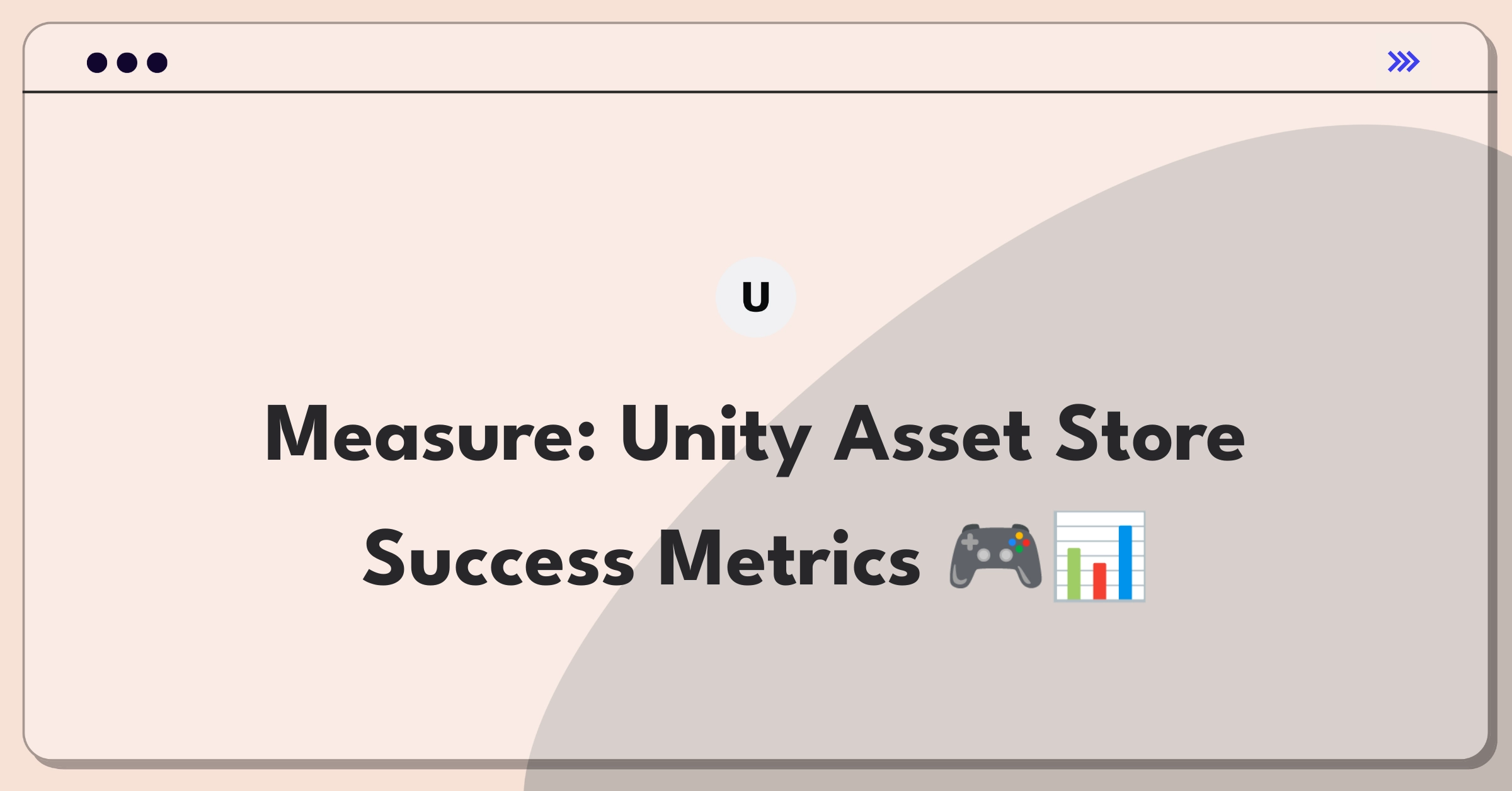Introduction
Defining the success of Unity Technologies' Asset Store marketplace is crucial for evaluating its performance and guiding strategic decisions. To approach this product success metrics problem effectively, I'll follow a structured framework that covers core metrics, supporting indicators, and risk factors while considering all key stakeholders.
Framework Overview
I'll follow a simple success metrics framework covering product context, success metrics hierarchy, and strategic initiatives.
Step 1
Product Context
Unity's Asset Store is a digital marketplace where game developers can buy and sell assets, tools, and services for use in Unity-based game development. Key stakeholders include:
- Asset creators (sellers)
- Game developers (buyers)
- Unity Technologies
- Investors
The user flow typically involves:
- Creators uploading assets to the store
- Developers browsing, searching, and purchasing assets
- Developers downloading and integrating assets into their projects
- Unity processing payments and managing the platform
The Asset Store fits into Unity's broader strategy of providing a comprehensive ecosystem for game development, differentiating itself from competitors like Unreal Engine Marketplace by offering a wider variety of assets and tighter integration with the Unity engine.
In terms of product lifecycle, the Asset Store is in the maturity stage, having been established for several years but still evolving to meet changing developer needs and market trends.
Subscribe to access the full answer
Monthly Plan
The perfect plan for PMs who are in the final leg of their interview preparation
$99.00 /month
- Access to 8,000+ PM Questions
- 10 AI resume reviews credits
- Access to company guides
- Basic email support
- Access to community Q&A
Yearly Plan
The ultimate plan for aspiring PMs, SPMs and those preparing for big-tech
- Everything in monthly plan
- Priority queue for AI resume review
- Monthly/Weekly newsletters
- Access to premium features
- Priority response to requested question


.png)